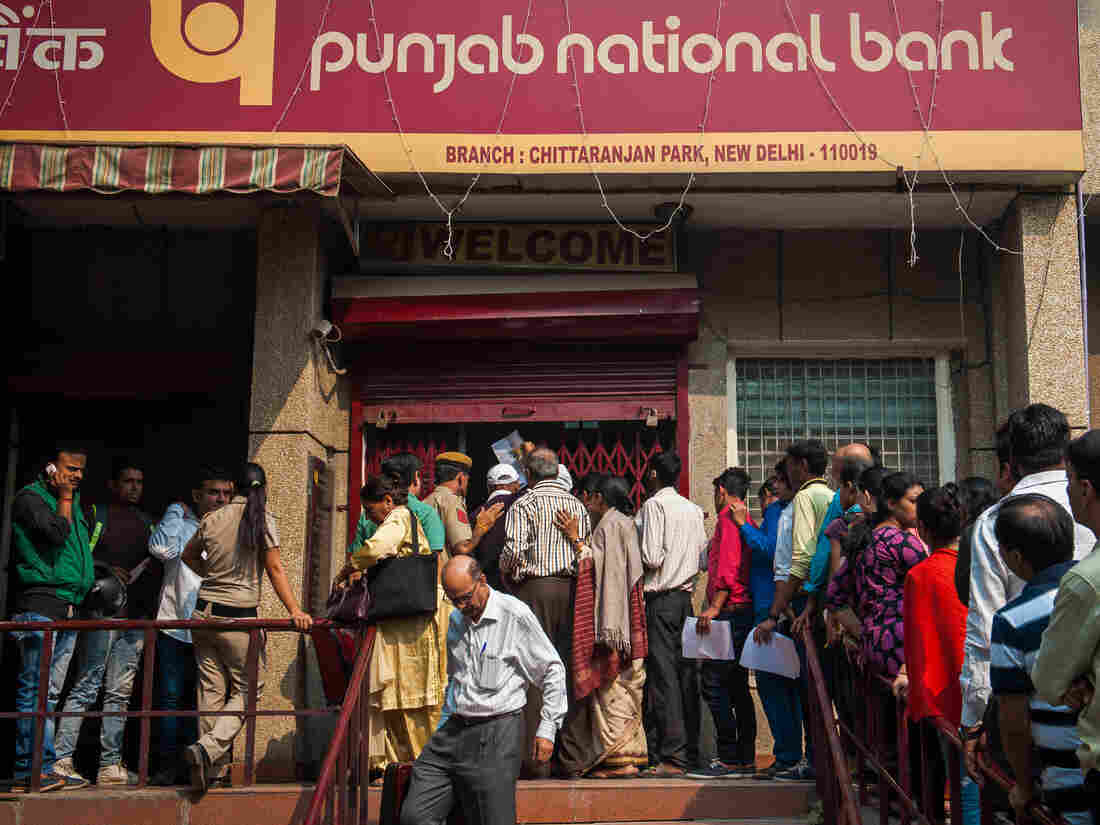By Robert Smith
People line up outside a bank to exchange old currency notes with new ones on November 10, 2016 in New Delhi India.
Shams Qari/Barcroft Media via Getty Images
hide caption
toggle caption
Shams Qari/Barcroft Media via Getty Images
This part two of a two part series. Listen to part one here.
A couple of years ago, a mechanical engineer met with Narendra Modi, who would later become India’s Prime Minister. The engineer proposed a bold and radical idea that he said would completely change the Indian economy. The idea is called demonetization, and it happened six months ago. The government suddenly declared most of the paper money in circulation worthless. Citizens had a short time to turn in their stashes of cash for new bills. It was an effort to flush out corruption, get people to join the banking system and in the process, help the poor of India.
In part one of this two-part series, we met the man behind demonetization, the engineer, Anil Bokil. Now in part two, we ask, did demonetization work?
Modi had three problems he wanted to solve if the country relied less on cash:
- Corruption. Without cash, it’s harder to hide money from the taxman. It’s also harder to ask for a bribe or run a black market business.
- Businesses could be more competitive and grow faster by using banks and electronic payments.
- More people would have to use banks, and not keep all their life savings in a drawer. This would keep their money safer.
-
Indian farmers talk beneath a fig tree. Since people couldn’t use cash, many farmers couldn’t sell their crops.Stacey Vanek Smith/NPR
-
Empty apartment buildings loom tall in the New Delhi suburbs. High rises like these are where most of India’s black money is stored.Stacey Vanek Smith/NPR
-
Gurdeep Sagoo had missed the deadline to exchange his mother’s bills. His mom was in a coma at the time. But the bank said it was too late to exchange it. And there went his mom’s life savings.Stacey Vanek Smith/NPR
1 of 3
But, suddenly removing most of the cash in an economy, is very messy. It hurt. Demonetization has affected different people in a variety of a ways. We talked with farmers who don’t trust credit cards, small shop owners who had to find new ways to sell their goods, and high tech companies trying to cash in.
Today on the show, we evaluate Modi’s demonetization plan … report card style. How did this shock to a cash-dependent economy play out for a country of a billion people?
Music: “Cheeky Tongues,” “Yada Yada,” and “Miss You.” Find us: Twitter/ Facebook.
Subscribe to our show on Apple Podcasts or PocketCast.



